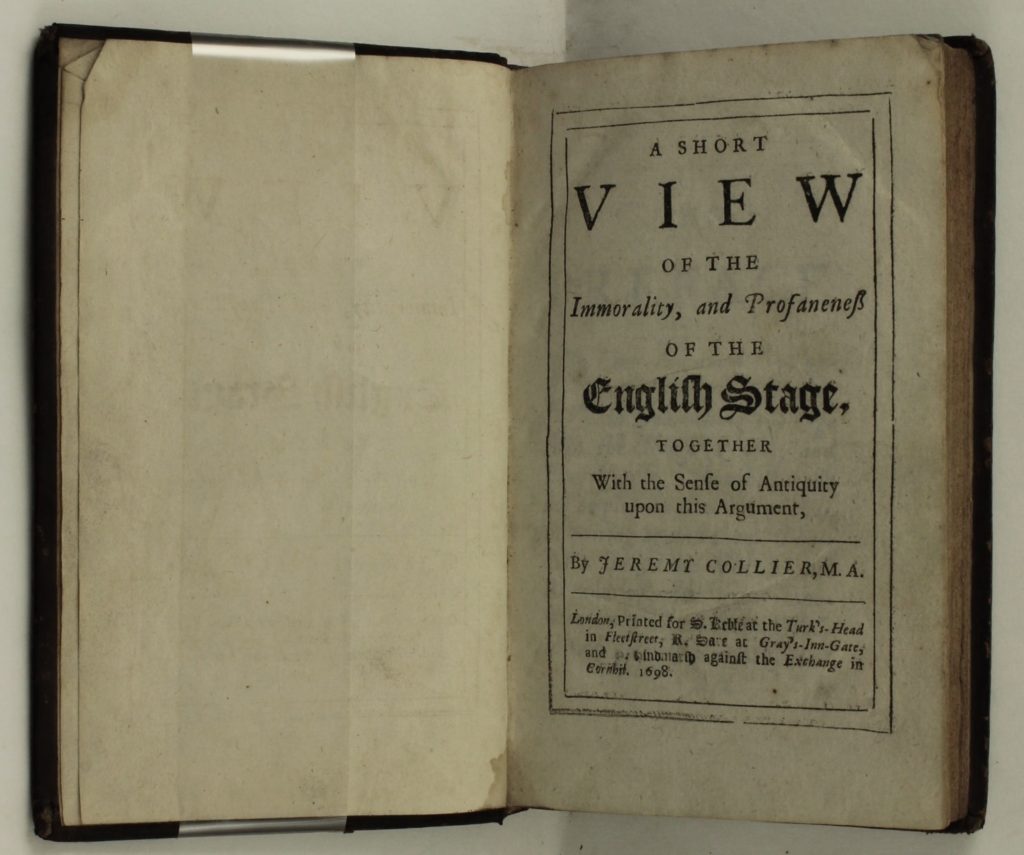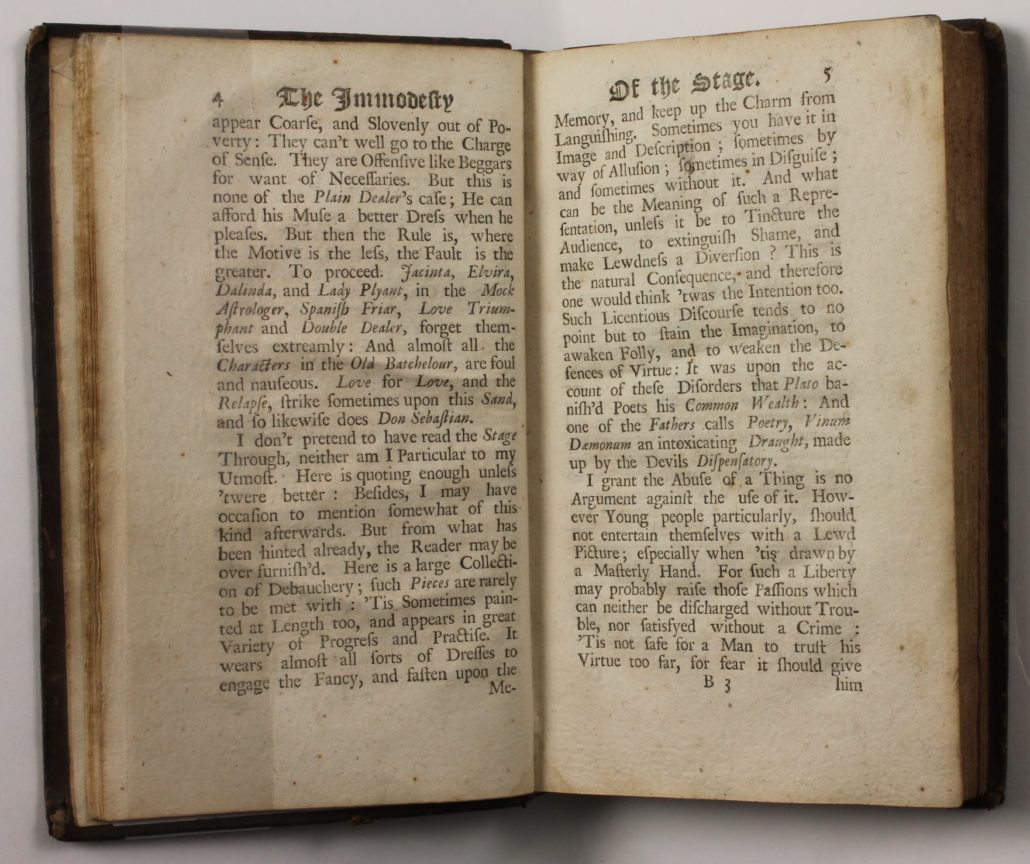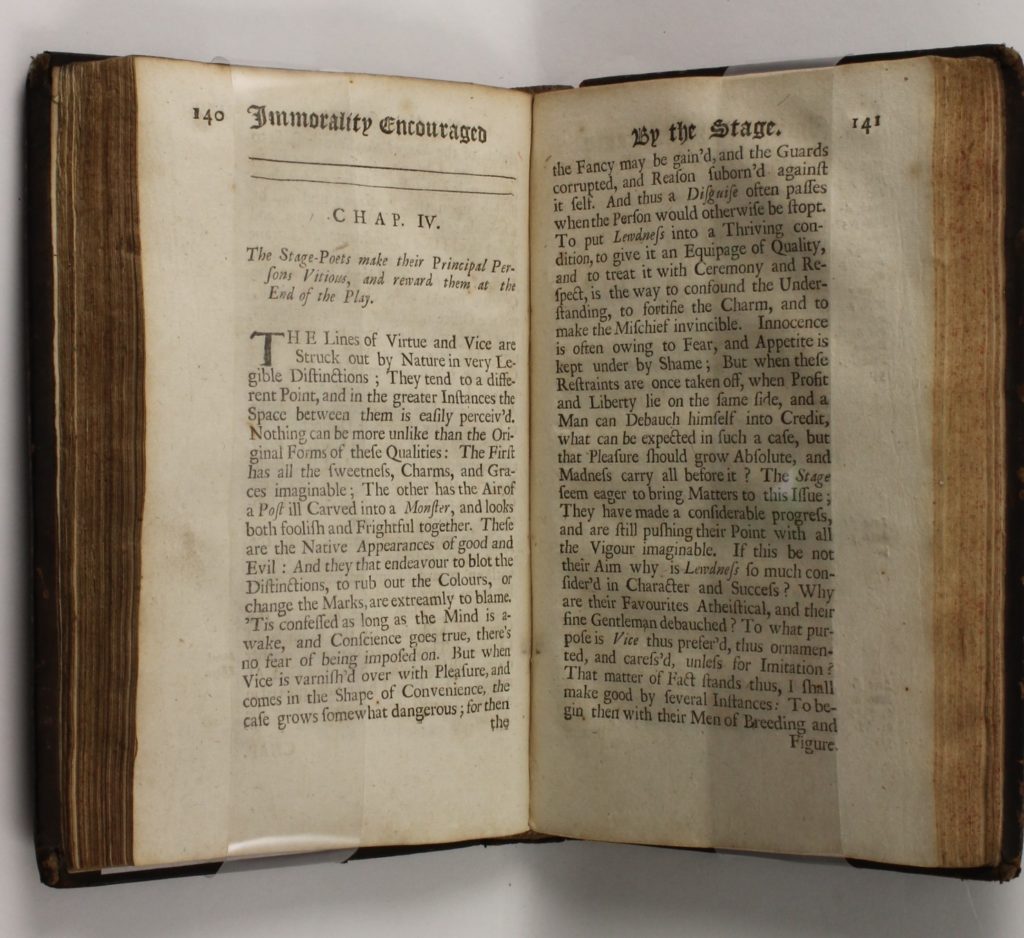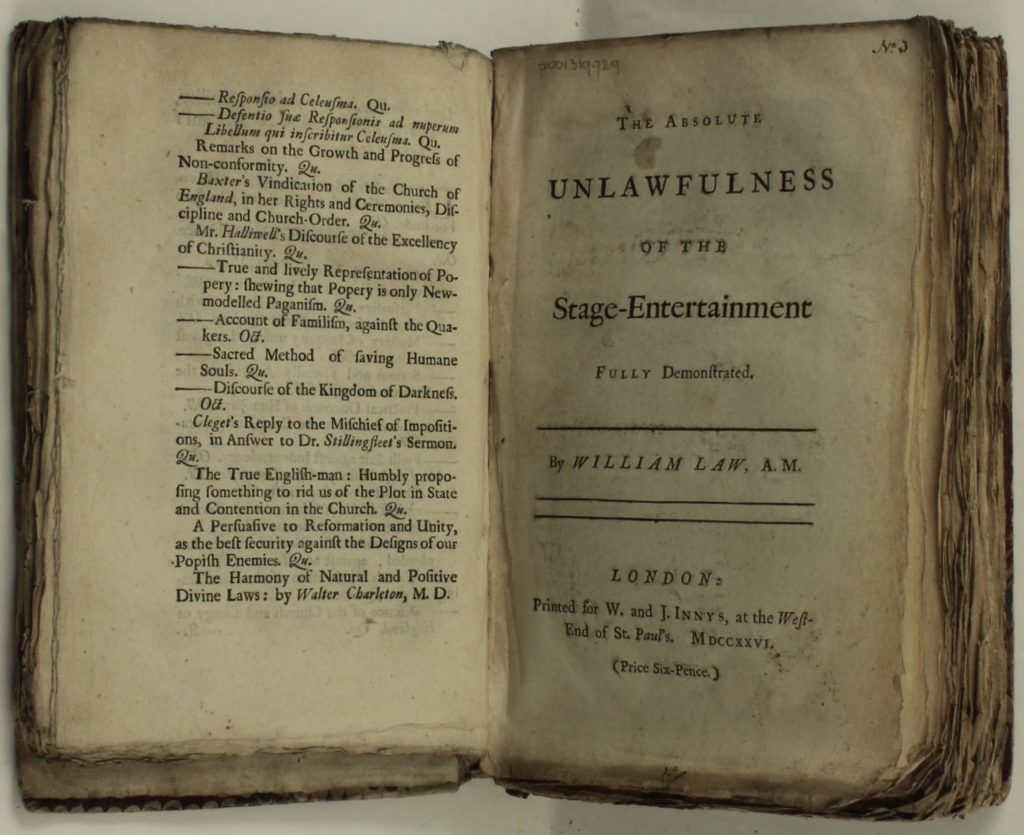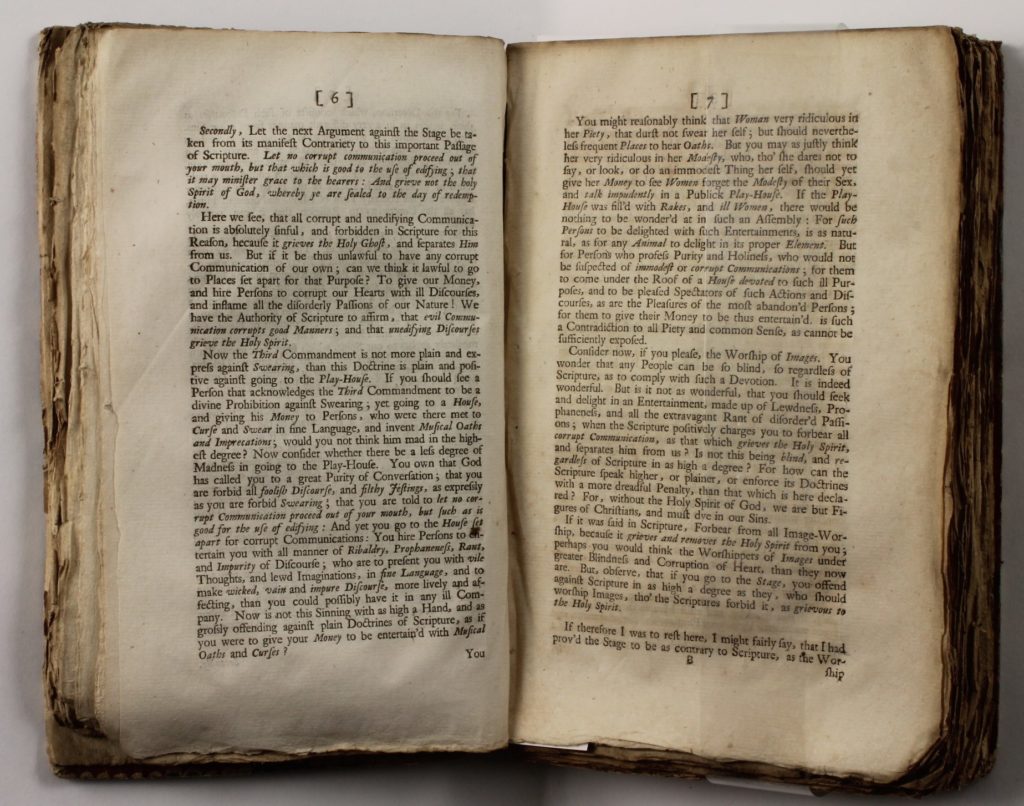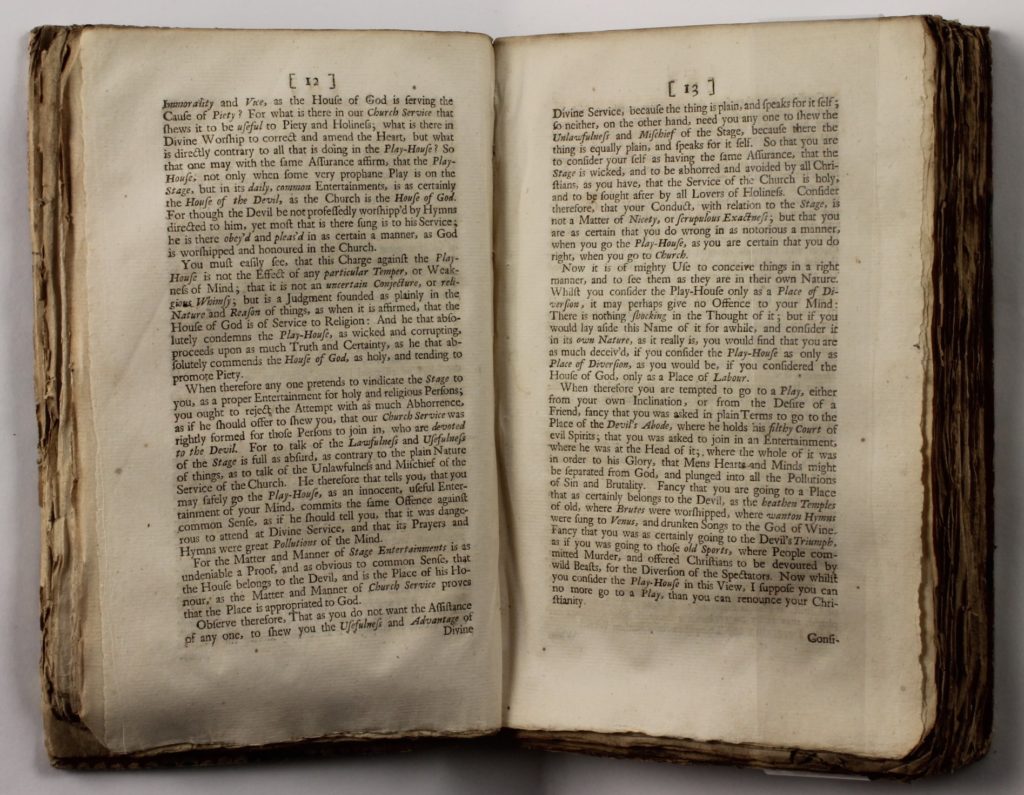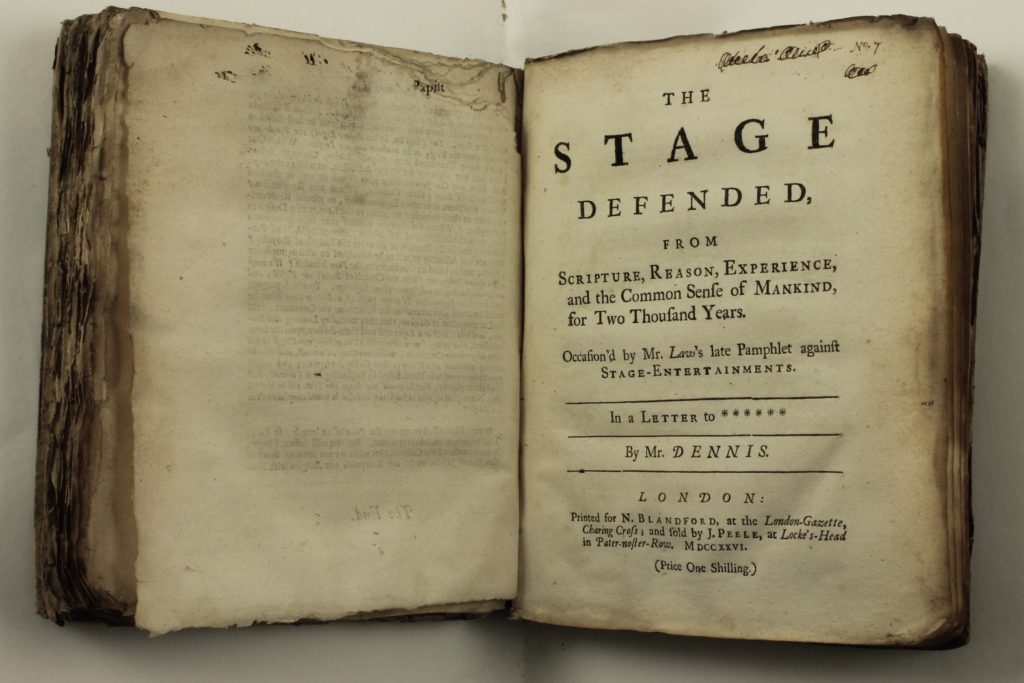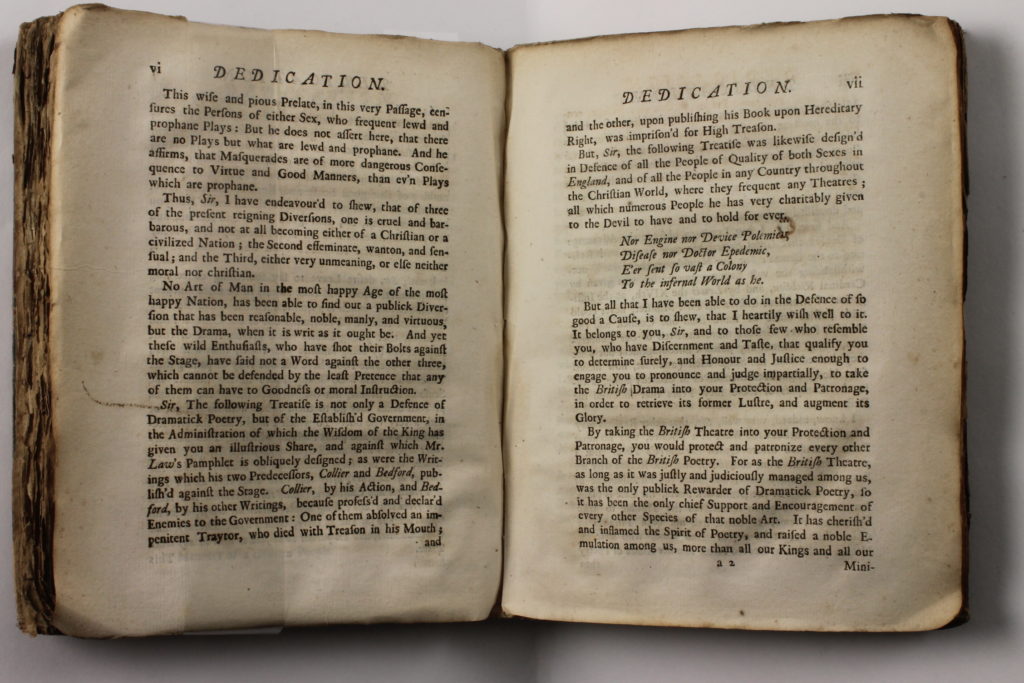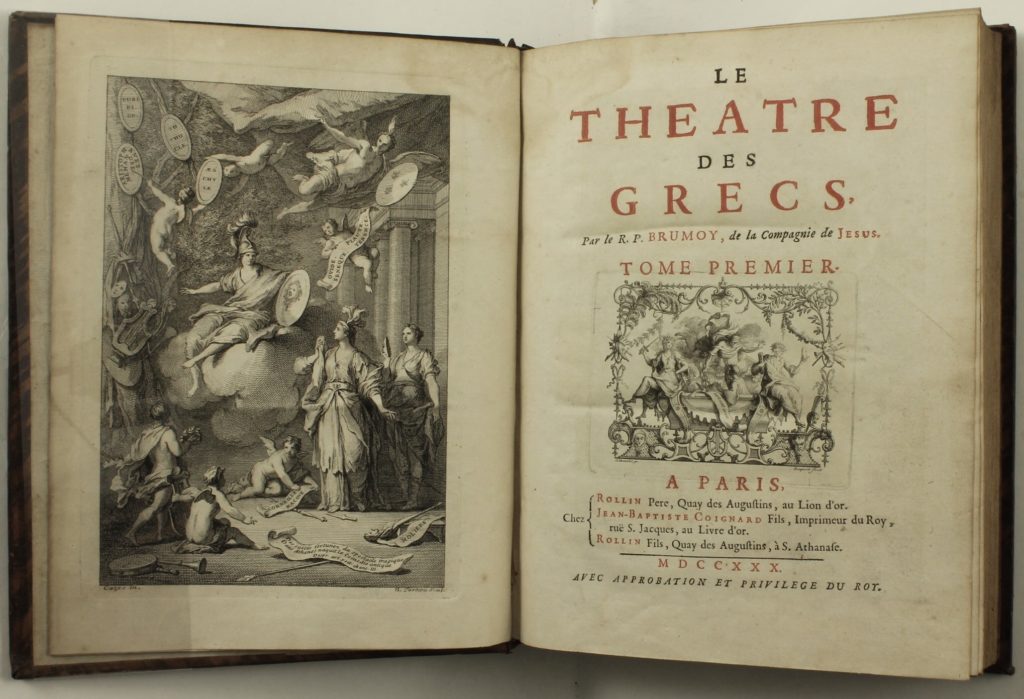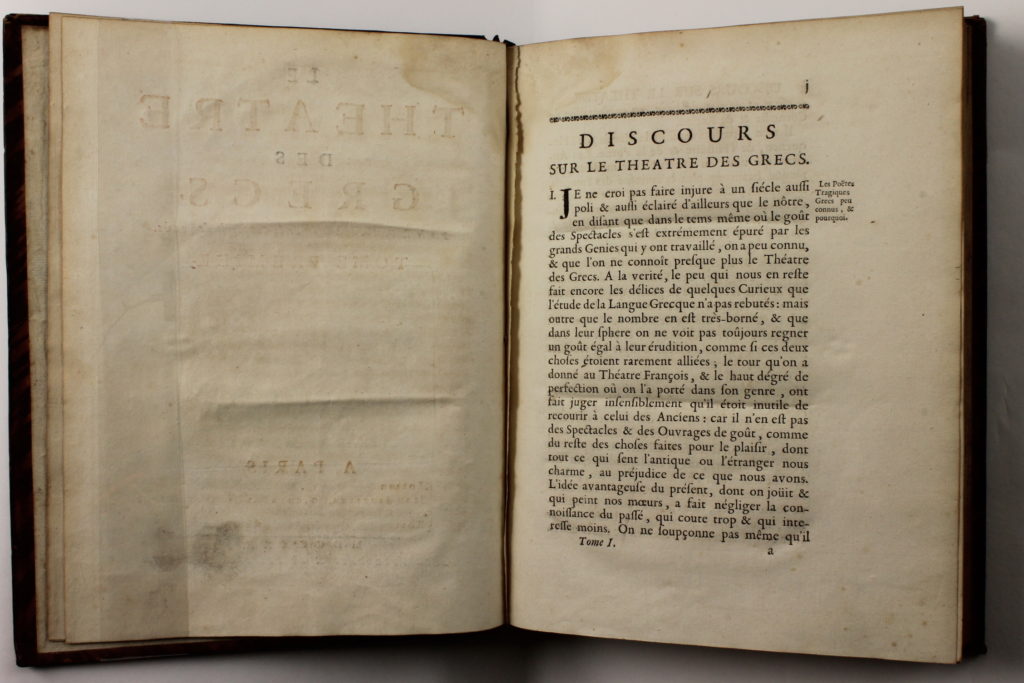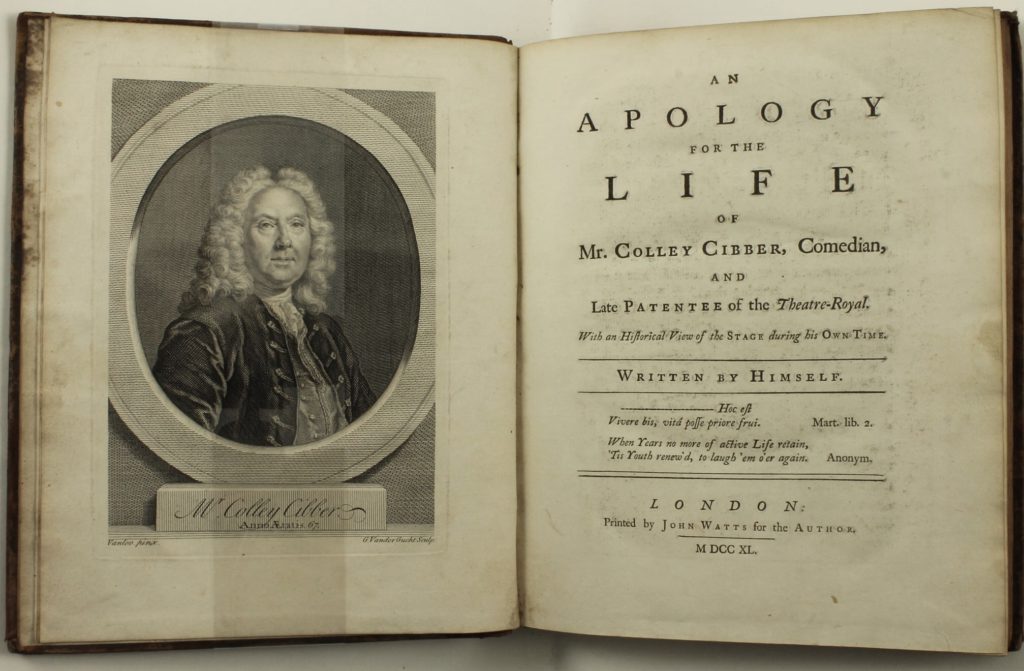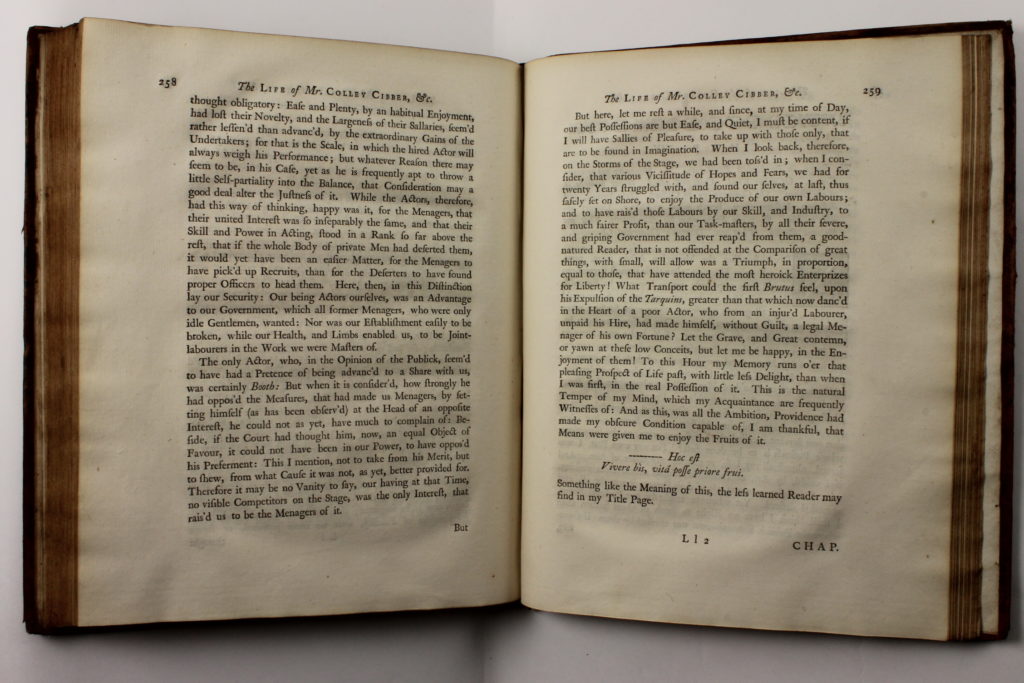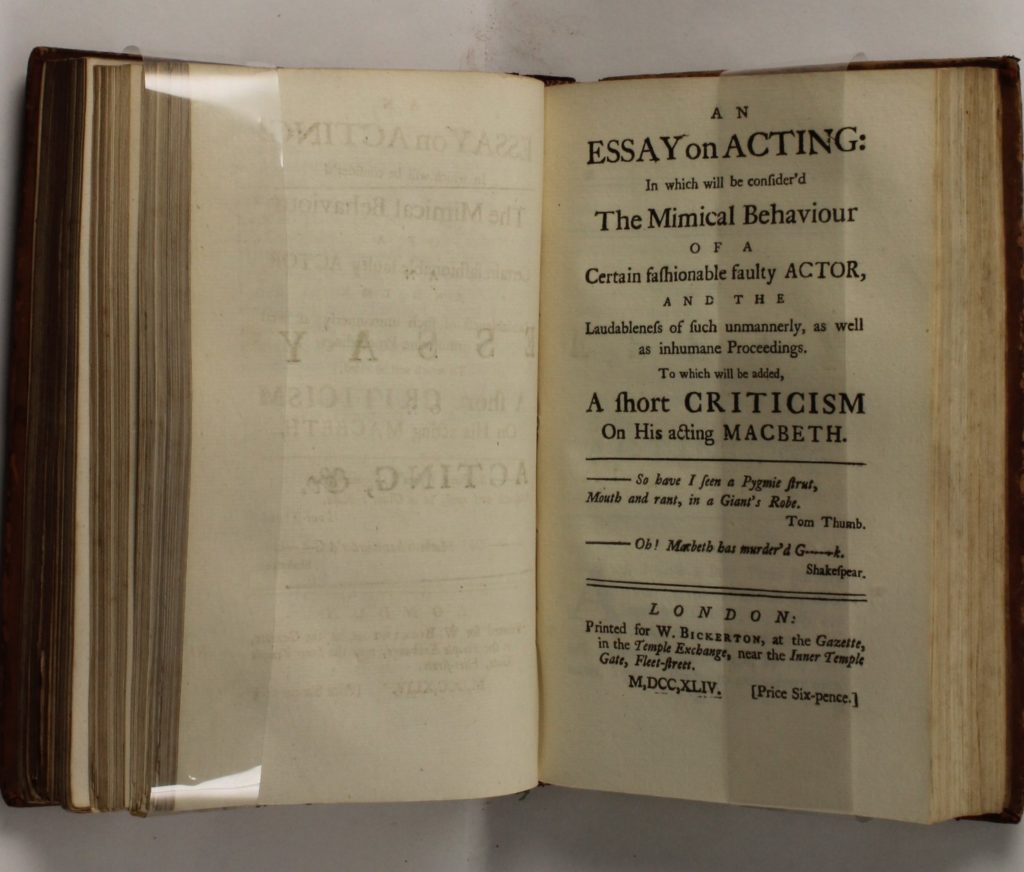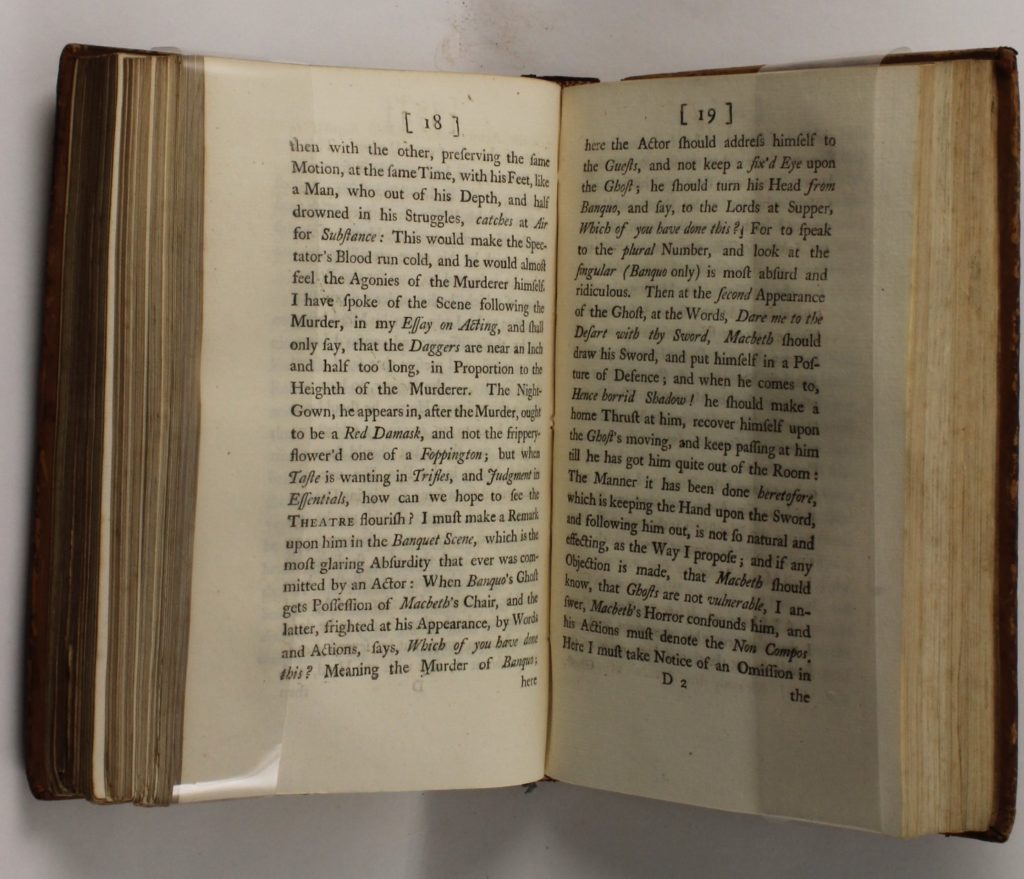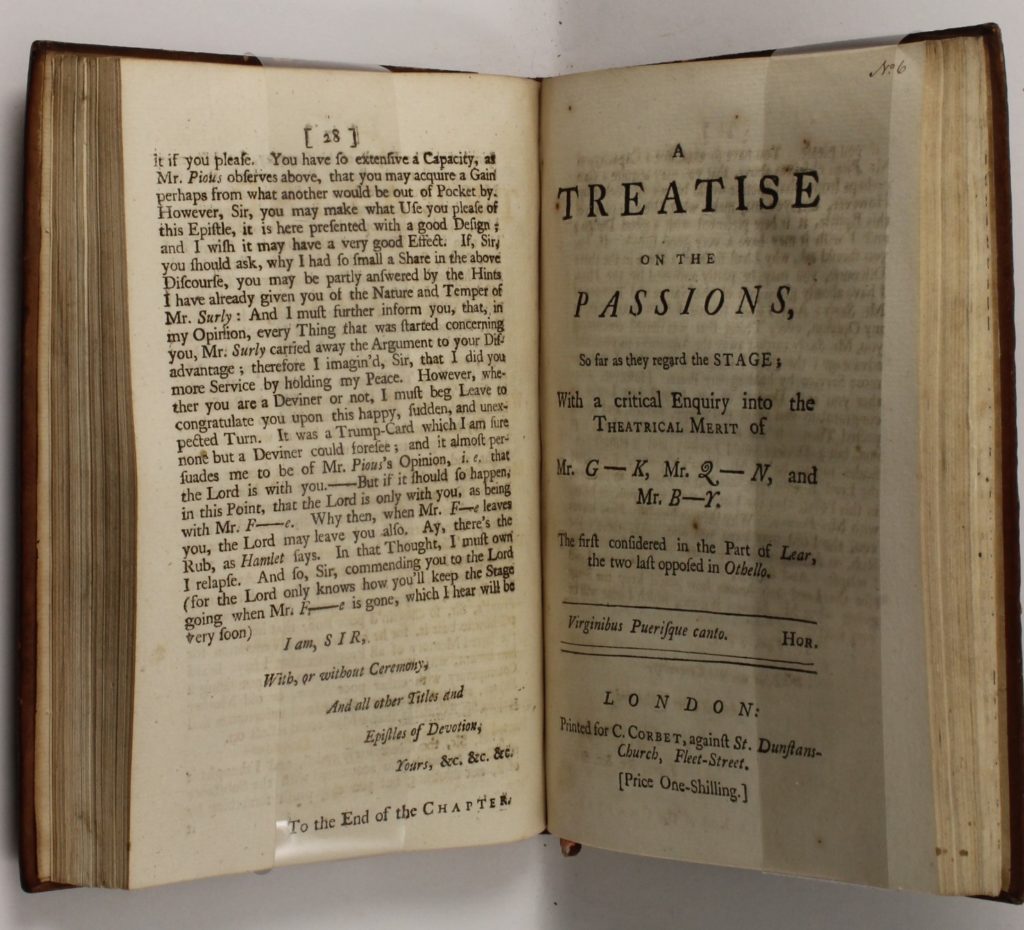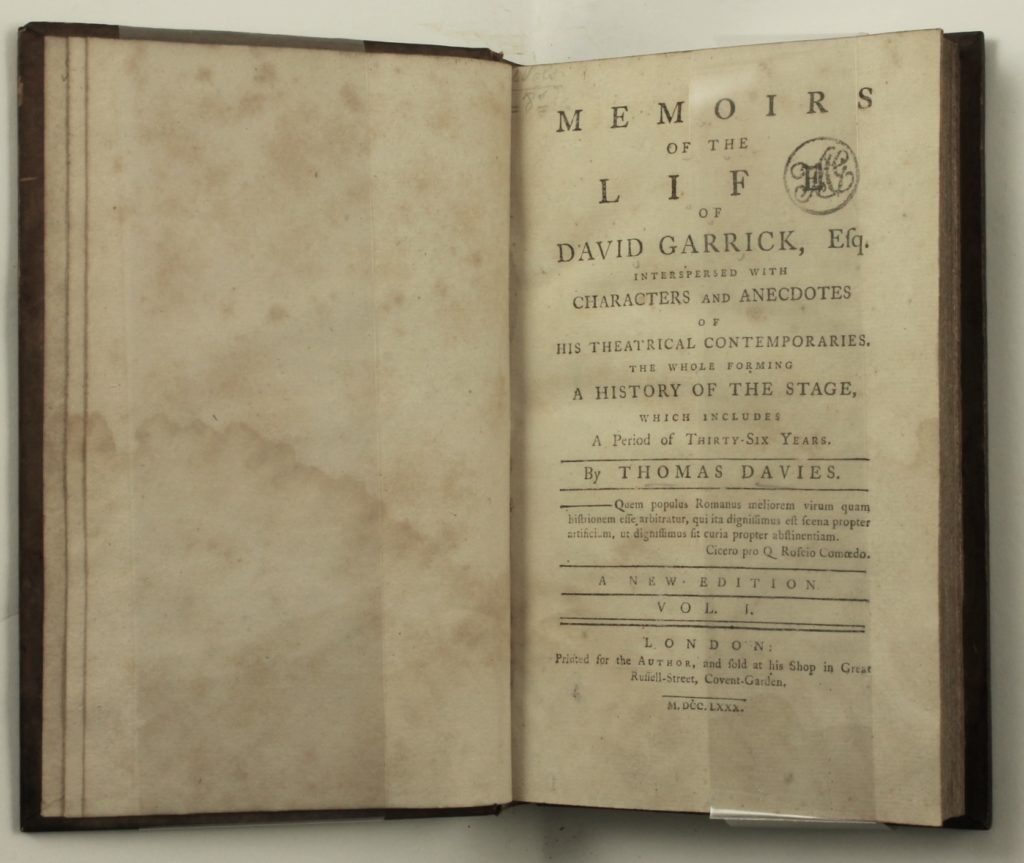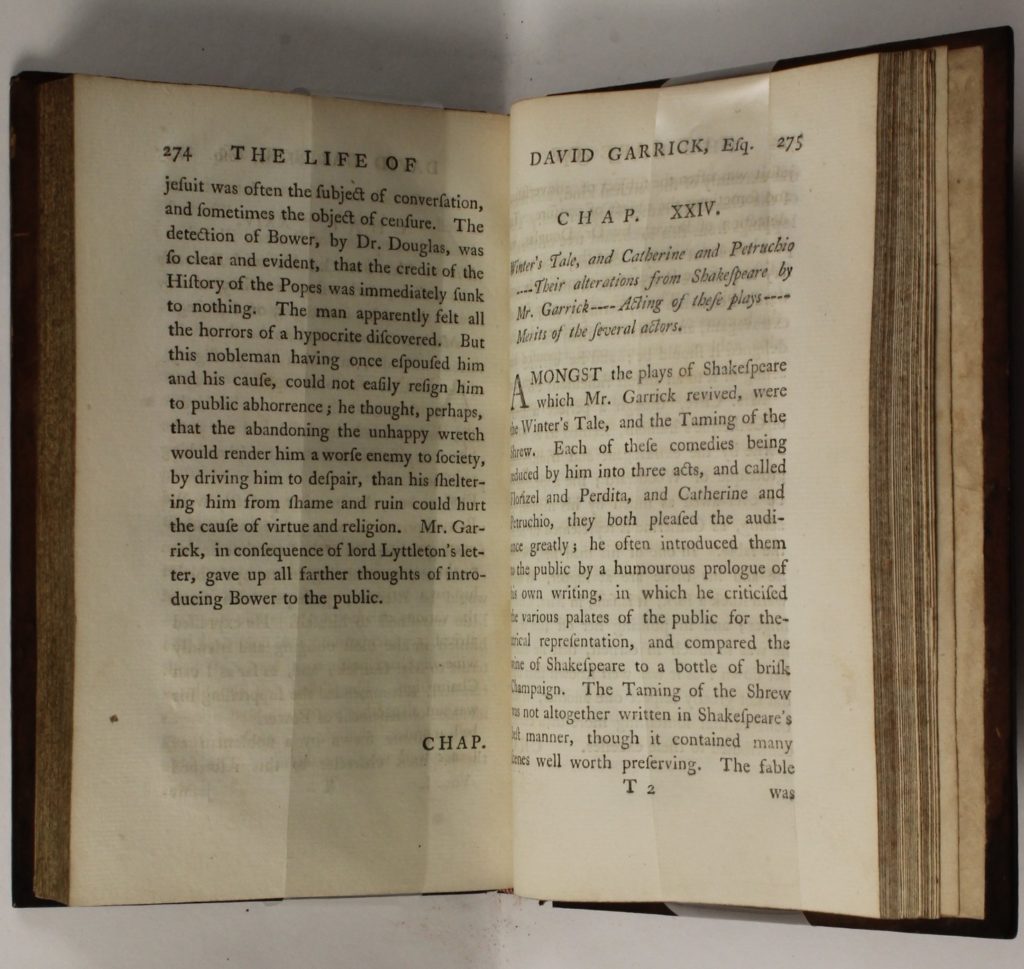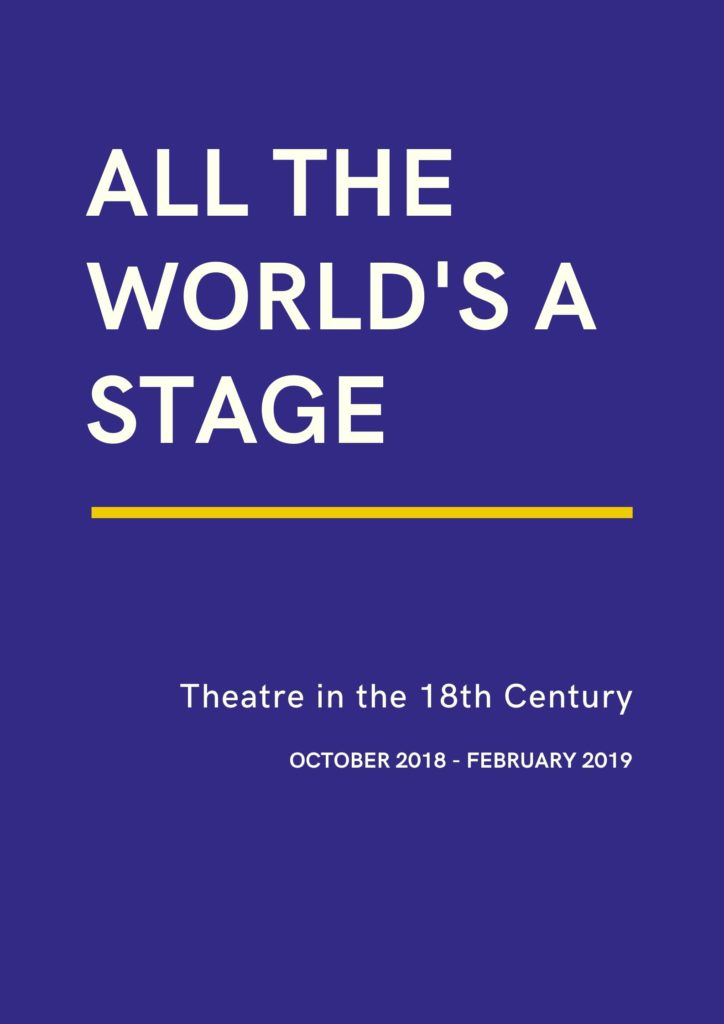
The 18th Century was a great age for theatre. This book exhibition on theatre in the 18th Century shows different texts from the Library collection on drama, acting and the stage.
In the 18th century many theatres were built to accommodate the large crowds wanting to see plays, musical performances, variety acts, acrobats and other entertainment. This development meant that people from all walks of life, not only the upper classes, could attend.
The growth of the number of theatres was not unanimously considered to be a positive addition to life. Some even accused the theatre of immorality.
A Short View of the Immorality and Profaneness of the English Stage, Together With the Sense of Antiquity upon this Argument Jeremy Collier 1698 P001341193
In A Short View English theatre critic Jeremy Collier launched a forceful and bitter verbal attack on theatre in general. He was of the opinion that the theatre should have a moral purpose, encouraging high moral standards and discouraging immoral behaviour.
The work evoked a lot of response, both in support and against. In return these replies were counter-attacked and commented on for nearly 25 years by 80 different authors. This war of pamphlets became known as The Collier Controversy.
The Absolute Unlawfulness of Stage Entertainment Fully Demonstrated William Law 1726 P001319929
Some of the last pamphlets in the Collier Controversy were written by William Law and John Dennis. William Law, a Church of England priest, was one of the harshest critics of the theatre in the 18th Century. He deems the theatre to be of a sinful nature, stating that the theatre distracts from religious practices and acts as a corrupting force.
[…] in an Entertainment made up of Lewdness, Profaneness, and all the extravagant Rant of disordered Passions.
[…] the Play – House, not only when some very profane Play is on the Stage, but in its daily common Entertainments, is as certainly the House of the Devil, as the Church is the House of God.
The work was highly criticised by John Dennis, who published The Stage Defended in the same year.
The Stage Defended, From Scripture Reason, Experience and the Common Sense of Mankind For Two Thousand Years John Dennis 1726 P001326623
The Stage Defended by playwright, poet and critic John Dennis was one of the last pamphlets written in the Collier Controversy. Dennis was not very successful as a playwright or a poet, and he is credited with being the source of the phrase stealing one’s thunder.
In 1704 he used a new method of creating the sound of thunder for his play Appius and Virginia. The play flopped, but the method of creating the sound was soon used in a production of Macbeth. Dennis is reported to have exclaimed:
That is my thunder, by God; the villains will play my thunder, but not my play!
Le Théâtre Des Grecs Pierre Brumoy 1730 P001358231?
Le Théâtre des Grecs by Pierre Brumoy contains translations and analyses of the Greek tragedies, with additional critical observations. Brumoy encouraged the public to read the Greek classics as historical products of their own time and culture, rather than place their own modern criteria on them.
The work quickly became the primary reference work on Greek drama in Western Europe in the 18th Century.
An Apology for the Life of Mr. Colley Cibber, Comedian and Late Patentee of the Theatre Royal Colley Cibber 1740 P001472050
An Apology for the Life of Mr. Colley Cibber is considered of great importance to British theatre history as a historical source.
It is the autobiography of Colley Gibber, a playwright, actor-manager and Poet Laureate.
In it he provides a lively account of the competitive nature of the theatre world, as well as descriptions of fellow actors.
At the time, an apology, or, apologia, was a statement in defense of one’s opinions or actions, rather than a statement of regret.
An Essay on Acting: In which will be considered the Mimical Behaviour of a certain fashionable faulty Actor David Garrick 1744 P001010758
In this anonymously published pamphlet Garrick ridicules the old and bombastic style prevalent in the theatre at the time. He especially attacked James Quick, his rival, stating he was a “Man […] out of his Depth”.
Garrick was instrumental in several reforms in the theatre business: he introduced different methods of acting, staging, and lighting to the theatre. He was a strong advocate for actors studying human nature, emotions and expressing in order to create believable characters.
A Treatise on the Passions, So Far As they Regard the Stage; With a Critical Enquiry into the Theatrical Merit of Mr.G[arrick]K,Mr.Q[ui]N, and Mr. B[arr]Y. Samuel Foote 1747 P001070998
Dramatist, actor and theatre manager Samuel Foote was known for his satire and impersonation skills. In 1766, Foote had his leg was amputated after a riding accident. He was able to incorporate his disability into his work to great effect.
In A Treatise, Foote discusses the art of expressing strong emotions, aimed towards the audience as the potential readers, rather than actors. He suggests that emotions and their effects on the audience depends both on who expresses them, and who receives them.
Memoirs of the Life of David Garrick Thomas Davies 1780 P001384186
David Garrick is hailed as one of the most talented and influential actors of all time. It is said that more portraits were painted of Garrick than of King George III!
He was instrumental in bringing Shakespeare to contemporary audiences, and in adapting older, somewhat forgotten plays. His collection of plays and books formed the basis for the library at the British Museum.

